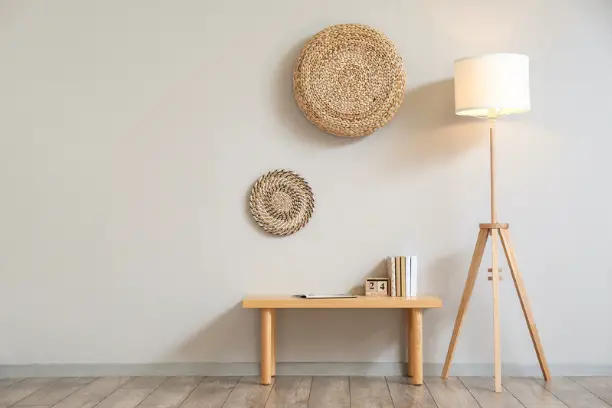Imagine living a life with less stress, more freedom, and extra money in your bank account. That’s the power of minimalism! Minimalism is a lifestyle that has gained popularity in recent years for its numerous benefits, ranging from decluttering physical possessions to simplifying life in general. It’s not just about owning fewer things; it’s a mindset that can have a profound impact on our finances, lifestyle, and even the environment.
At its core, minimalism is about intentional living and prioritizing what truly matters. It’s about letting go of the excess and focusing on what brings value and joy into our lives. Minimalism is a deliberate choice to simplify and streamline, whether it’s our possessions, our schedules, or our mindset about money. By adopting a minimalist lifestyle, we can experience a multitude of benefits that can lead to financial savings, reduced stress, enhanced well-being, and a smaller environmental footprint.
In this blog post, we will explore the benefits of a minimalist lifestyle and how it can save you money. We will delve into the financial, lifestyle, and environmental benefits of living with less and provide practical tips on how to adopt a minimalist mindset and simplify your life. So, let’s dive in and discover how minimalism can transform your life and your finances for the better!
Financial Benefits of Minimalism
I. Reduced Expenses
One of the significant financial benefits of adopting a minimalist lifestyle is reduced expenses. Minimalism encourages a mindful approach to consumption, which means being intentional about what we buy and avoiding unnecessary purchases. This mindset can result in lower spending on material goods, leading to significant savings over time.
For example, minimalism can influence our choices when it comes to housing. Instead of opting for a large and expensive home, minimalists often choose smaller, more affordable living spaces that meet their basic needs. This can result in lower mortgage or rent payments, reduced utility bills, and decreased maintenance costs, leaving more money in their pockets.
Transportation is another area where minimalism can lead to cost savings. Minimalists often prioritize functional and efficient modes of transportation, such as walking, biking, or using public transportation, rather than owning multiple cars or indulging in luxury vehicles. This can significantly reduce expenses related to car payments, insurance, fuel, and maintenance.
Furthermore, minimalism can impact how we spend on entertainment and leisure activities. Minimalists tend to focus on meaningful experiences rather than accumulating material possessions. This can lead to less spending on unnecessary items or excessive leisure activities, such as dining out, shopping for clothes, or indulging in expensive hobbies. Instead, minimalists may opt for free or low-cost activities like hiking, reading, or spending quality time with loved ones, which can lead to significant cost savings.
Statistics and research support the cost-saving benefits of minimalism. According to a study conducted by UCLA, the average American household has over 300,000 items, and clutter can cause stress and affect our well-being. Adopting a minimalist lifestyle and decluttering can result in reduced spending on unnecessary items, leading to significant cost savings over time.
2. Increased Savings
Minimalism also encourages saving money for future goals and financial security. By being intentional about spending and avoiding unnecessary purchases, minimalists can allocate more money towards savings or investments for long-term financial growth.
Minimalists often prioritize building an emergency fund, which can provide a safety net in times of unexpected expenses or job loss. Having an emergency fund can prevent reliance on credit cards or loans, resulting in less debt and financial stress.
Furthermore, minimalists tend to be mindful of their financial goals and prioritize saving for them. Whether it’s for retirement, travel, education, or other long-term objectives, minimalists understand the importance of setting aside money for the future. This disciplined approach to saving can result in increased savings and financial security, providing a sense of peace and stability.
There are numerous success stories of individuals who have achieved financial independence through minimalism. By being intentional about their spending and focusing on saving and investing, many minimalists have been able to retire early, travel the world, or pursue their passions without being burdened by financial constraints. Minimalism provides a clear path towards financial freedom by prioritizing savings and investments over unnecessary spending.
3. Debt reduction
Minimalism promotes conscious consumption, which means being mindful about what we truly need and avoiding excessive spending on wants. This mindset can lead to reduced reliance on credit cards and loans, resulting in debt reduction.
Minimalists tend to prioritize needs over wants and make thoughtful purchasing decisions. They avoid accumulating unnecessary possessions or going into debt for material possessions that do not bring significant value or joy into their lives. By prioritizing essential needs and avoiding unnecessary purchases, minimalists can prevent falling into debt or pay off existing debt faster.
Minimalism also encourages decluttering and selling or donating possessions that no longer serve a purpose. The proceeds from selling unnecessary items can be used to pay off debts, leading to debt reduction and financial freedom.
There are numerous testimonials and case studies of individuals who have successfully paid off debt with the help of minimalism. By adopting a minimalist lifestyle and being intentional about their spending, they have been able to reduce their debt burdens and achieve financial freedom. Minimalism provides a fresh perspective on consumerism, helping individuals prioritize their financial well-being by living with less and avoiding unnecessary debt.
4. Improved financial well-being
Overall, adopting a minimalist lifestyle can lead to improved financial well-being. By being intentional about spending, saving, and investing, minimalists can achieve greater financial freedom, reduce financial stress, and improve their overall financial health.
Minimalism encourages individuals to live within their means, avoid unnecessary debt, and prioritize savings and investments. This disciplined approach to personal finance can result in improved financial stability, reduced financial stress, and increased financial security.
Minimalists also tend to focus on experiences and meaningful goals rather than material possessions. This can lead to greater fulfillment and happiness, which are essential components of overall well-being, including financial well-being. By prioritizing value and meaning in their spending, minimalists can achieve a more holistic sense of financial well-being.
Furthermore, minimalism encourages individuals to assess their relationship with money, consumerism, and material possessions. This self-reflection can lead to healthier attitudes towards money, reduced impulsive spending, and improved financial habits. Minimalism fosters a shift towards conscious consumption and intentional living, resulting in improved financial well-being and a more fulfilling life overall.
Lifestyle Benefits of Minimalism
Minimalism is a lifestyle that extends beyond just decluttering and organizing physical possessions. It encompasses a mindset shift towards intentional living, prioritizing experiences, and simplifying various aspects of life. Adopting minimalism as a way of life can lead to numerous lifestyle benefits that can enhance one’s well-being and overall quality of life.
5. Reduced stress and overwhelm
In today’s fast-paced and consumer-driven society, many individuals experience stress and overwhelm due to the constant pursuit of material possessions and the pressure to keep up with societal expectations. Minimalism offers a reprieve from this constant cycle of consumption by encouraging individuals to live with less and be intentional about their belongings.
Minimalists tend to declutter their physical spaces, letting go of unnecessary possessions and keeping only those that truly add value and meaning to their lives. This decluttering process can reduce the physical and mental clutter in their environment, leading to a more organized and peaceful living space. With fewer possessions to manage, minimalists experience reduced stress and overwhelm associated with excessive material possessions, leading to a calmer and more focused mindset.
Moreover, minimalism promotes simplicity in various aspects of life, including daily routines, commitments, and obligations. By simplifying life, minimalists are able to reduce the overwhelm of a busy and cluttered lifestyle, allowing them to prioritize what truly matters to them and create more space for self-care, personal growth, and meaningful experiences.
6. Enhanced Focus on Experiences and Relationships
Minimalism emphasizes the importance of experiences and relationships over material possessions. Minimalists prioritize creating meaningful memories and building authentic connections with others over accumulating material possessions.
With fewer material possessions to manage and maintain, minimalists are able to free up time, energy, and resources to focus on experiences that bring them joy and fulfillment. They may choose to invest in travel, hobbies, or other experiences that align with their values and interests rather than spending on material possessions that provide temporary satisfaction.
Minimalists also prioritize building and nurturing relationships with loved ones. With fewer distractions from material possessions, they can invest more time and effort in building meaningful connections and fostering deeper relationships with family, friends, and the community. This focus on experiences and relationships can lead to increased happiness, fulfillment, and overall life satisfaction.
7. Flexibility in Lifestyle Choices
Minimalism promotes a lifestyle that is not tied to material possessions or societal expectations. Minimalists often prioritize their values and personal interests, which can lead to greater flexibility in lifestyle choices.
For example, minimalists may choose to live in smaller, more affordable homes that require less time and effort to maintain, giving them the freedom to pursue other interests and activities.
By simplifying one’s lifestyle and reducing financial burdens, minimalists can enjoy increased freedom to travel and explore the world. Minimalism can also provide flexibility in career choices. With fewer possessions tying them down, minimalists can more easily move to different locations for job opportunities and can also pursue careers that may not offer high salaries but align with their values and passions.
Environmental benefits of minimalism
Minimalism has not only personal and financial advantages but also significant environmental benefits. In a world where sustainability and environmental consciousness are increasingly important, minimalism can contribute to a more eco-friendly lifestyle.
8. Reduction of Consumption:
One of the primary environmental benefits of minimalism is the reduction of consumption. Minimalism promotes mindful and intentional consumption, where you only acquire and keep what you truly need and value. This means buying less, which not only helps you save money but reduces the demand for products and resources.
In a consumer-driven society where overconsumption and waste are major environmental concerns, minimalism encourages a shift towards more conscious and sustainable consumption habits. By buying fewer items and using them for longer periods of time, you can reduce your ecological footprint, minimize waste, and contribute to the conservation of natural resources.
9. Waste reduction
Minimalism also promotes the idea of quality over quantity. Instead of accumulating large quantities of cheap and disposable items, minimalism emphasizes investing in high-quality, durable, and long-lasting possessions.
This reduces the need for constant replacement or upgrading, which in turn reduces waste and promotes sustainability. Choosing to purchase high-quality items that are made to last rather than cheap and disposable items that end up in landfills can help reduce environmental degradation and promote a more sustainable approach to consumption.
10. Product Repurposing
Furthermore, minimalism encourages the practice of repurposing, reusing, and recycling. Rather than constantly buying new items, minimalism encourages creativity in finding new uses for existing possessions, repairing or repurposing them when possible, and donating or recycling items that are no longer needed. This promotes a circular economy, where resources are used efficiently, waste is minimized, and the environmental impact is reduced.
11. Reduced energy consumption
Finally, minimalism can significantly contribute to reducing energy consumption and carbon emissions. One of the key aspects of minimalism is opting for smaller living spaces with fewer possessions. Living in smaller spaces, such as tiny houses, compact apartments, or downsized homes, inherently requires less energy for heating, cooling, and lighting compared to larger homes. Smaller spaces are easier to heat and cool efficiently, resulting in reduced energy use and lower carbon emissions.
Moreover, with fewer possessions, there are fewer electronics and appliances that require energy to operate, leading to overall lower energy consumption.
FINAL THOUGHTS ON THE BENEFITS OF MINIMALISM
In conclusion, embracing a minimalist lifestyle can bring about a multitude of benefits, ranging from financial savings and enhanced well-being to positive environmental impacts. Minimalism is not just about decluttering possessions; it’s a mindset and a way of life that encourages intentional consumption, simplifies choices, and promotes sustainability.
By reducing expenses, increasing savings, and paying off debt, minimalism can improve one’s financial situation and foster a healthy money mindset. Additionally, minimalism promotes mindful consumption, waste reduction, and sustainable living, contributing to a smaller environmental footprint and a more sustainable future.
So, if you are looking to save money, reduce stress, simplify your life, and make a positive impact on the environment, consider incorporating minimalist principles into your lifestyle. Start by decluttering your possessions, being mindful of your consumption, prioritizing experiences over material possessions, and being intentional with your financial decisions. Embrace the power of minimalism and unlock the benefits of a more intentional, fulfilling, and sustainable way of living.🍀✨
Read More:
- 101 Frugal Tips to Save Money
- 9 Bad Money Habits That Are Keeping You Poor
- 10 Things You Need to Stop Buying to Save Money Fast
- 9 Frugal Tips to Live Below Your Means
- 10 Simple Money-Saving Tips for Beginners
- The One Habit You Need to Save Money
- How to Make Money with Blogging: Top 5 Ways






